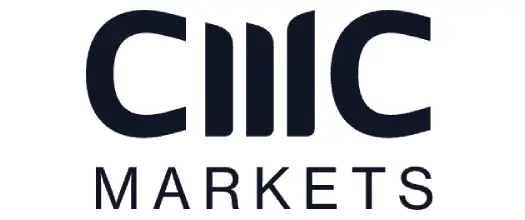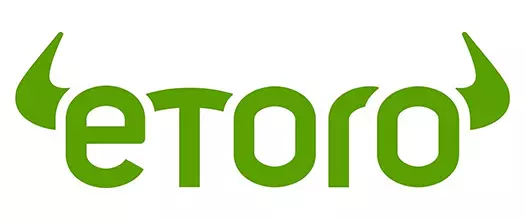Micro accounts are a popular choice among UK traders interested in exploring Forex trading. They enable traders to start with significantly less capital compared with standard accounts, often making them an ideal entry point for beginners or those wishing to experiment with new strategies without a heavy financial commitment.
The average minimum deposit requirement at UK Forex brokers offering micro accounts typically ranges from £5 to £50. This low entry barrier allows traders to begin trading with micro lots, a standardised trade size of 1,000 units of the base currency, equivalent to one-tenth of a mini lot and one-hundredth of a standard lot. Thanks to the ability to trade in small increments, micro accounts help beginners manage risk more effectively and gain practical experience without significant potential losses.
 FxPro
FxPro IG
IG Eightcap
Eightcap Axi
Axi CMC Markets
CMC Markets eToro
eToroBelow you can find more information about the best trading platforms with micro accounts in the UK:
- FxPro, an FCA-regulated broker, facilitates micro-lot trading across most available account types, allowing small-scale and risk-conscious Forex traders to dip their toes in the world’s most liquid market.
- IG, a broker authorised by the FCA, offers micro-lot trading with competitive Forex spreads, starting from 0.6 points on major currency pairs such as EUR/USD. In addition, UK customers have access to tax-free spread betting.
- Eightcap, a brand licensed by the FCA, enables trading in micro lots on TradingView accounts, where minimum spreads start from 1 pip and there is no commission on Forex trades. The account supports three base currencies – pound sterling, euro and US dollar.
- Axi, an FCA-compliant brokerage, supports micro-lot trading via MetaTrader 4 with Standard, Pro and Elite accounts. The first two options have no minimum deposit requirements; however, Elite users must start with an initial balance of at least $25,000 (approximately £18,500).
- CMC Markets, a broker holding a licence from the FCA, enables positions as small as 0.01 lots, offering three main account types for spread bettors, CFD traders and active traders. Up to 12,000 instruments are available for trading, including more than 330 currency pairs.
- At eToro, another FCA-regulated brand, first-time deposits for the UK start at $50 (approximately £37), while subsequent transactions have a threshold of $10 (or the equivalent in pound sterling, approximately £7.40). This, coupled with micro-lot trading, makes the broker ideal for small-scale traders.
Within the UK regulatory framework, micro-account users can access leverage, trade a variety of currency pairs and utilise advanced trading platforms. This makes them a useful entry point into Forex, offering a lower-risk and flexible way to participate in global currency markets. Micro accounts enable both beginners and experienced traders to approach the market with confidence and, by choosing a suitable broker, they can unlock the potential of Forex trading.
The Concept of Micro Trading Accounts Explained
Micro trading accounts are a type of Forex trading account that allow traders to place real orders with smaller amounts of capital. This account type is designed for traders who want to keep their risk to a minimum, making micro-lot trading an ideal option for new traders or those looking for a way to put their strategies to the test.
Furthermore, micro trading accounts typically feature spreads comparable to standard accounts, making them a low-risk and appealing way for traders of any level to engage with the Forex market.
Who Are Micro Trading Accounts Suitable For?
Micro trading accounts are suitable for a range of traders, including novices, seasoned traders and enthusiasts who want to test their strategies. Beginners can benefit from micro trading accounts because they allow them to trade with minimal risk, making this account type an ideal way to learn the basics of Forex trading.
Experienced traders can also benefit from micro trading accounts because they allow them to test new strategies or refine existing ones without exposing themselves to significant financial risk. Additionally, micro trading accounts are suitable for traders who want to trade with a smaller amount of capital, making them an attractive option for those with a tight budget. As micro accounts offer leverage, it is possible to open larger positions while dedicating only a small fraction of one’s budget to trading.
Overall, micro trading accounts are a versatile trading solution that can be used by traders of all levels and backgrounds.
How Do Micro Trading Accounts Compare to Mini and Standard Accounts?
Micro, mini and standard accounts are all types of Forex trading accounts that can be offered to UK traders. While they share many similarities, they differ in terms of lot size, risk level and other features.
Micro trading accounts typically offer a lot size of 0.01 lots, which is equivalent to 1,000 units of the base currency. Mini accounts serve as an intermediate step, with lot sizes ten times larger (10,000 units of the base currency). Standard accounts involve trading full lots, or 100,000 units in the account’s base currency.
Regarding trading costs, micro trading accounts often come with the same conditions that may apply to mini and standard accounts. However, it is not uncommon for micro accounts to have slightly wider spreads. That said, commission is rarely applied to micro accounts. Overall, micro trading accounts are a low-risk trading solution suitable for traders who want to trade with a smaller amount of capital.
Below you can see a comparison table showing the main differences between the three account types. Bear in mind, however, that in many cases the only difference between them is the size of the trades one can make.
| Micro Account | Mini Account | Standard Account | |
| Lot Size | 0.01 lots (1,000 units) | 0.1 lots (10,000 units) | 1 standard lot (100,000 units) |
| Suitable for | Beginners, low-capital trading, strategy testing | Medium-sized traders | Professional and advanced traders, managing larger positions |
| Spreads | Wider | Moderate | Tighter |
| Commission | Often commission-free | Low or no commission | May include commissions |
| Risk Level | Low (small trade sizes) | Moderate | High (larger trade sizes) |
| Trading Instruments | Limited (e.g., Forex, crypto) | Broader (e.g., Forex, CFDs) | Full range (e.g., stocks, ETFs) |
| Margin Requirements | Low | Moderate | High |
| Suitability | Practice, low-risk strategies | Growing capital, testing strategies | High-volume, advanced strategies |
Can UK Traders Generate Decent Profits While Trading with Micro Accounts?
Despite placing smaller-sized trades, UK traders can still generate decent profits while trading with micro accounts. The key to accumulating significant returns with micro accounts is to use a solid trading strategy and manage risk effectively. This can be achieved by using stop-loss orders, limit orders and other risk-management tools.
Additionally, UK traders can use technical analysis and fundamental analysis to identify profitable trading opportunities. By combining a solid trading strategy with effective risk assessment, UK traders can generate respectable profits while trading with micro accounts.
It’s also important to note that micro trading accounts can be used to trade a range of currency pairs, including major pairs such as EUR/USD and GBP/USD, as well as minor pairs such as EUR/GBP and EUR/JPY.
Advantages of Micro Trading Accounts
Micro trading accounts have several advantages, including the ability to trade with minimal risk, smaller capital and the option to optimise positions through leverage. Notably, the biggest perk of micro accounts is the opportunity to trade with a smaller amount of capital. Micro trading accounts also provide traders with the option to test their strategies and refine their skills without exposing themselves to significant financial risk.
Additionally, micro trading accounts are often easier to manage than mini and standard accounts, making them a great option for new traders. Micro trading accounts also provide traders with the flexibility to trade a range of currency pairs, including major and minor pairs. This offers a wide selection of trading opportunities, making it possible to generate decent profits while relying on micro accounts. Overall, micro trading accounts represent low-risk trading solutions suitable for traders of all levels and backgrounds.
To summarise, the main advantages of micro accounts include:
- Low-risk trading solution
- Minimal capital requirements
- Flexibility to trade a range of currency pairs
- Opportunity to test trading strategies and refine skills
- Suitable option for various trader types
Disadvantages of Micro Trading Accounts
Despite being a great option for several reasons, micro trading accounts also have some disadvantages. These include lower profit potential, higher transaction costs and limited trading opportunities. Because micro trading accounts are designed for trading with smaller amounts of capital, they often have lower profit potential than mini and standard accounts. In addition, micro trading accounts often come with higher transaction costs, primarily as a result of wider spreads.
Micro trading accounts also offer limited trading opportunities, as they are restricted to trading with smaller lot sizes. This can limit the potential for traders to generate significant profits. Overall, micro trading accounts are a low-risk trading solution, but they may not be suitable for traders who want to generate substantial profits or enjoy higher-risk trading experiences.
To summarise, the main disadvantages of the micro account include:
- Lower profit potential
- Higher transaction costs
- Limited trading opportunities
- Restricted to trading with smaller lot sizes
- Wider spreads can eat into profits
- Not suitable for traders with a riskier trading approach
FAQ
How do UK Forex brokers handle negative balance protection for micro account holders?
UK Forex brokers are required to offer negative balance protection to all account holders, including micro account holders, to prevent traders from losing more than their initial deposit.
Can UK Forex brokers offering micro accounts provide access to trading signals and automated trading systems?
Yes, many UK Forex brokers offering micro accounts provide access to trading signals and automated trading systems, such as Expert Advisors (EAs) and copy-trading platforms. These tools can help micro account holders make more informed trading decisions and potentially increase their trading performance.
How do UK Forex brokers ensure the security and integrity of micro account holders’ personal and financial data?
UK Forex brokers are required to comply with strict data protection regulations, such as the General Data Protection Regulation (GDPR), to ensure the security and integrity of micro account holders’ personal and financial data.
How can UK traders manage risk on a micro trading account?
To manage risk on a micro trading account, traders can use a range of tools and strategies, including stop-loss orders, limit orders and position sizing. It’s also essential to set realistic goals, monitor your account balance and adjust your trading strategy as needed.
How do UK Forex brokers handle the taxation of micro account holders’ trading profits and losses?
UK Forex brokers are required to provide micro account holders with a detailed statement of their trading profits and losses, which can be used to calculate tax liabilities. Micro account holders, like any other trader in the UK, are responsible for reporting their trading profits and losses to His Majesty’s Revenue and Customs (HMRC) and may be subject to capital gains tax on their trading profits.